
 |
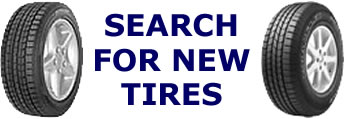 |
||||||||||||||||||||||||||||||||||||||||||||||||||||||||||
Simple Car Care Tips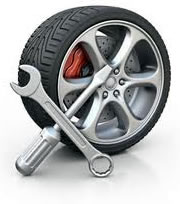 We want to make sure your vehicle is well maintained so you can get where you want to go. Maintaining Your Vehicle • Start your vehicle and get moving: The faster you get the engine up to its proper operating temperature, the better. • Eliminate roll shifting: Always come to a complete stop before shifting from Drive into Reverse or vice versa. • Use your parking brake on hills: When you set the parking brake and the ignition is on, the brake system warning light will come on. To prevent any damage to your brake system, make sure the parking brake is fully released and the warning light is off before driving. • Fill your tank: Allowing your gas tank to run dry or be consistently low can lead to problems. Fuel pumped from a relatively dry tank may carry oxygen, moisture and deposits into the fuel line, and this could damage the fuel filter or fuel pump. It's best to fill your tank any time it's less than one-third full. • Choose soap designed for clearcoat paint finishes: The presence of abrasives could weaken the clearcoat and dull the finish. Dishwashing detergent can be hazardous to your vehicle's finish. Soaps made for today's clearcoat finishes are available at auto parts stores, grocery stores or drug store chains. • Don't ride the clutch: If your vehicle is equipped with a manual transmission, improperly releasing the clutch pedal, pushing it too far or not far enough, or riding it at the point of engagement can damage parts. Strive for smooth, seamless shifting. • Beware of additives: Mixing additives into oil, transmission fluid or gasoline may upset the chemical balances that already exist in these fluids. Stay away from additional additives unless recommended by your service consultant. • Follow your vehicle's maintenance schedule: It's best to change your oil, filters and spark plugs and to conduct other maintenance as outlined in your Owner's Manual. • Tire Inflation: Proper tire inflation can improve gas mileage by more than 3% or ten cents per gallon when maintained regularly. Save money and wear and tear on your tires! Prepare Your Vehicle for Cold Weather Your vehicle faces challenges as temperatures drop and it needs a little extra care as the mercury plummets. A little preparation before winter sets in may help prevent major headaches later. What You Can Do • Make sure you have a heavy-duty ice scraper and snow brush in your vehicle. • Cold weather reduces tire pressure, so check tire pressure often. See your owner's manual for directions and details. • In severe winter temperatures, you may have to change the grade of your engine oil. Check your vehicle's owner's manual for the viscosity grade recommended for your vehicle's engine. • Check your wiper blades. Cold temps can make blades brittle, and ice on the windshield can cause nicks in the blades, decreasing performance. • If you're planning a trip, take a blanket, extra-warm clothing, a collapsible shovel, a bag of road salt and an extra bottle of windshield-washer fluid. • Put on snow tires if you live in major snow-belt areas. Check your vehicle's owner's manual for details and recommended practices. Even in climates that don't see subfreezing temperatures or regular snow, the change in season is a great time to have a service center technician inspect or check the following areas: Antifreeze - A quick and simple check of the coolant will tell immediately how much protection it will deliver in cold temperatures. Antifreeze that is good to 0° F or -10° F might be fine for Arizona drivers, but not so for those in Minnesota. Make sure your antifreeze will do its job for your area's typical winter temperatures. Battery - Very cold weather saps the cranking capability of a battery, and a marginal one that did the trick in the summer may not start your car when the thermometer drops. Have the battery inspected and replace it if the cold-cranking amps aren't sufficient - it'll be easier in the long run than a couple of jump-starts on a freezing January morning. Belts and hoses - Extremely cold temperatures can increase the chance of failure for worn or cracked belts and hoses. Use the change in season to have them inspected and replaced as necessary. Tires - Cold temperatures can reduce the air pressure in tires, so making sure the tires are properly inflated can enhance fuel economy and prolong the life of the tires. Also, be sure to have the tread wear inspected. For drivers in areas that see ice and snow in the winter, adequate tire tread often means the difference between an easy commute and a tire-spinning ordeal - or getting stuck. Wipers - Winter brings precipitation, be it rain, snow, sleet or all of the above. Have your car's wipers inspected for normal operation and have the wiper blades replaced if they smear, streak or "chatter." You'll also want a full reservoir of washer fluid for the winter. If you live in a snowy area where the roads are routinely salted, have your car washed often throughout the winter. It will ward off rust and protect the finish of the exterior paint and wheels. Car trouble systems can indicate minor or major problems with your vehicle. This glossary of terms should help you identify what's going wrong with your vehicle and assist you in letting your technician know exactly what's been happening. |
||||||||||||||||||||||||||||||||||||||||||||||||||||||||||
|
||||||||||||||||||||||||||||||||||||||||||||||||||||||||||
| When you see a technician for repair or maintenance, you can expect thorough, reliable vehicle care. You can also expect your technician to answer any questions about your vehicle's needs. If you know which relevant questions to ask your technician, then you'll be better prepared and informed through every step of vehicle service. Review our list of questions below to take with you to your service appointment. Check your owner's manual for proper service intervals. | ||||||||||||||||||||||||||||||||||||||||||||||||||||||||||
| FAQs: Frequently Asked Auto and Car Service Questions | ||||||||||||||||||||||||||||||||||||||||||||||||||||||||||
| Oil Change, Filters and Fluids
• How often should I get an oil change? • Is the oil you're using the right type for my vehicle and driving habits? • Do I need a new oil filter every time I get an oil change? • How often does my air filter need to be changed? • Is an oil filter change included with oil change service? • When my fluids are low, will my vehicle alert me? • How often should my vehicle's fluid levels be checked and refilled? |
||||||||||||||||||||||||||||||||||||||||||||||||||||||||||
| Brakes
• What does it mean when my vehicle's brake warning light appears? • How can I change my driving habits to make my brake pads last longer? • Will replacing my brake pads/rotors solve the braking problems I've been experiencing? • Should my vehicle get any related brake services while the pads/rotors are being replaced? |
||||||||||||||||||||||||||||||||||||||||||||||||||||||||||
| Tire Service
• If my car begins shaking at higher speeds, are my tires the problem? • Are my driving habits affecting my vehicle's tire wear? • Should my driving habits be a factor in determining which type of tires to buy? • What are the consequences if an incorrect tire size is installed on my car? • If I need one tire replaced, should I replace two at the same time? All four? • How do I determine proper air tire pressure? • Do front and rear tires require the same amount of pressure? • How will my vehicle be affected if there is too much or too little air pressure in the tires? |
||||||||||||||||||||||||||||||||||||||||||||||||||||||||||
| Wheel Alignment
• Does alignment service affect all four wheels? • Will you road-test my vehicle to make sure it is properly aligned? • Does improper wheel alignment cause poor tire wear or cause my vehicle to pull to one side? • Can an alignment problem lead to worn steering and suspension parts? |
||||||||||||||||||||||||||||||||||||||||||||||||||||||||||
| Air Conditioning Service
• When it's hot outside, should I turn the air conditioning on immediately or should I roll the windows down and let the car run first? • If my A/C system is not cooling properly, can I damage it if I keep using it anyway? • Is liquid dripping from the bottom of my vehicle normal when using the A/C? • What is wrong with my A/C if it is emitting a musty smell from the vents? • I hear a clicking under my hood and the A/C is cooling inconsistently. What is wrong with the system? • What are the benefits of R-134a refrigerant? Should I switch my older vehicle over from R-12 or Freon refrigerant? |
||||||||||||||||||||||||||||||||||||||||||||||||||||||||||
| Belts and Hoses
• How do you identify electrolytic corrosion? How does it affect my cooling system? • What are the individual features and benefits of a V-belt and a serpentine belt? • What is the purpose of the notches on an aftermarket V-belt? • Why are branched hoses beneficial to my vehicle? |
||||||||||||||||||||||||||||||||||||||||||||||||||||||||||
| Tune-Up
• What are the services included in a tune-up? What other maintenance should my vehicle receive at this time? • What is my vehicle's ideal tune-up service interval? • Does the "Service Engine Soon" light tell me when my vehicle needs a tune-up? |
||||||||||||||||||||||||||||||||||||||||||||||||||||||||||
| Service Engine Soon Light
• What are the possible problems when my "Service Engine Soon" light appears? • While you're investigating what triggered the "Service Engine Soon" light, do you recommend any additional services? • If I ignore the light, what are the possible consequences? • If I don't investigate the problem, will the light turn off by itself? • Is it possible for my vehicle to pass an emissions test if the "Service Engine Soon" light is on? |
||||||||||||||||||||||||||||||||||||||||||||||||||||||||||
| ^ Top of page | ||||||||||||||||||||||||||||||||||||||||||||||||||||||||||
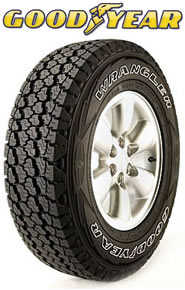
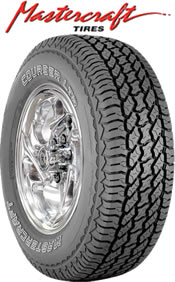
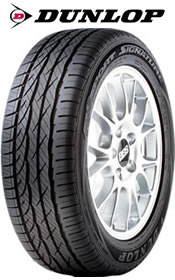
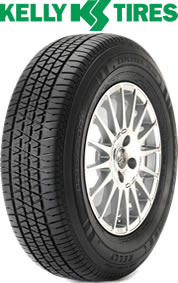
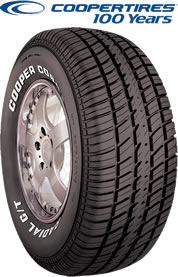 We are a proud Goodyear dealer, but as one of the largest independent tire dealers in North America we have access to all tire brands at very competitive pricing and can handle warranties on any tire we sell. 


 
 |
||||||||||||||||||||||||||||||||||||||||||||||||||||||||||
|
AUTO REPAIR & SERVICES Air Conditioning Repair, Driveline Repair, Tire Balancing, Air Filters, Engine Repair, Tire Installation, Alternator Repair, Fluid Inspection, Tire Repair, Battery Replacement, Muffler Repair, Tire Rotation, Belt Hose Replacement, Nitrogen, Transmission Repair, Brake Repair, Oil Changes Service, Tune Up, Car Service, Preventative Maintenance, Wheel Alignments, Cooling System Repair, Suspension Repair, Windshield Wiper Blades |
||||||||||||||||||||||||||||||||||||||||||||||||||||||||||
 |
||||||||||||||||||||||||||||||||||||||||||||||||||||||||||
| ^ Top of page |
         |
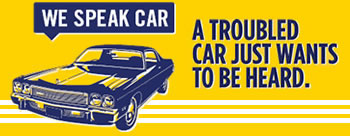 |
|
NebraskaLand KansasLand ColoradoLand Tire Group Guyymon Tire & Auto Service Panhandle Tire & Rubber |